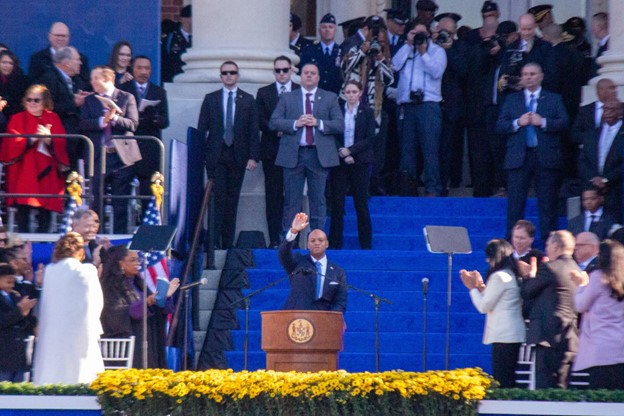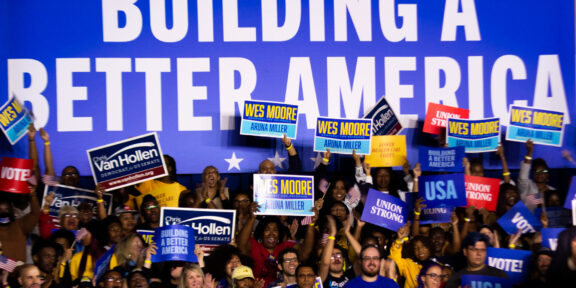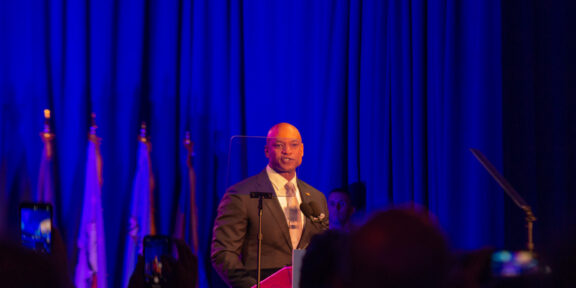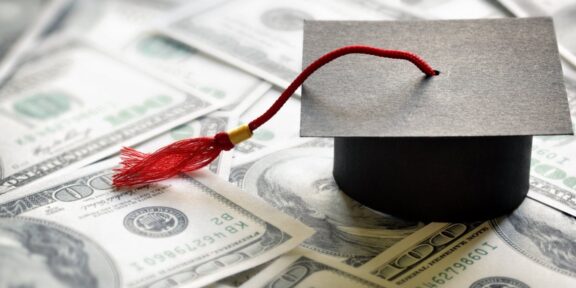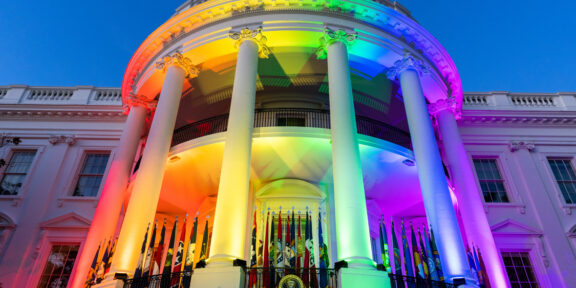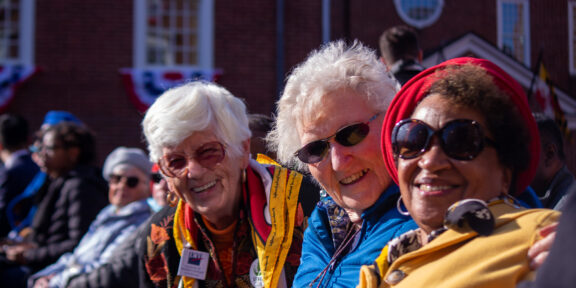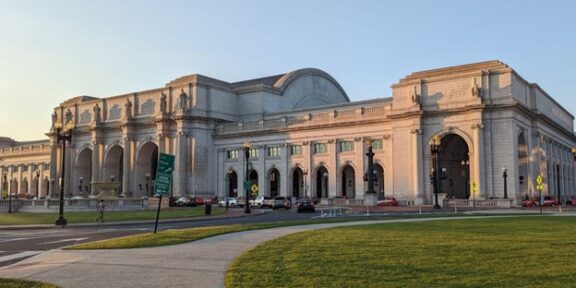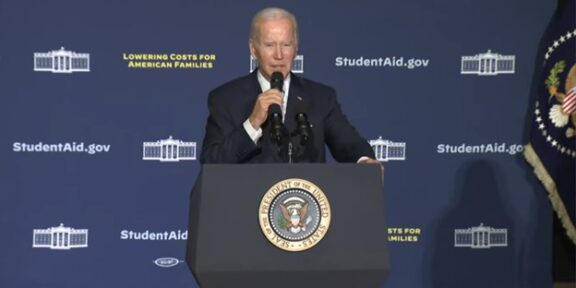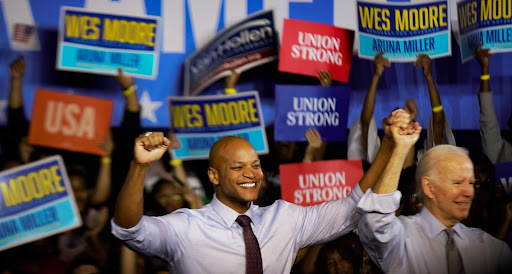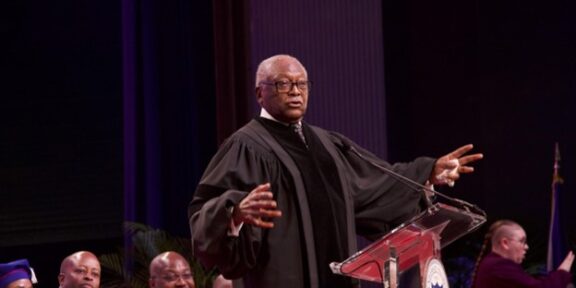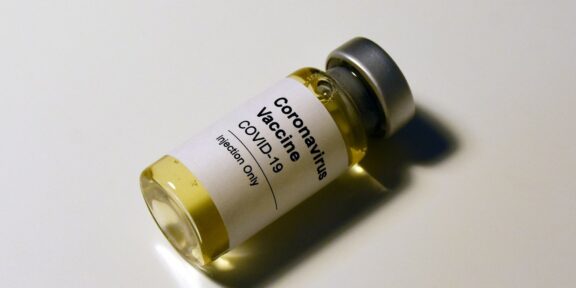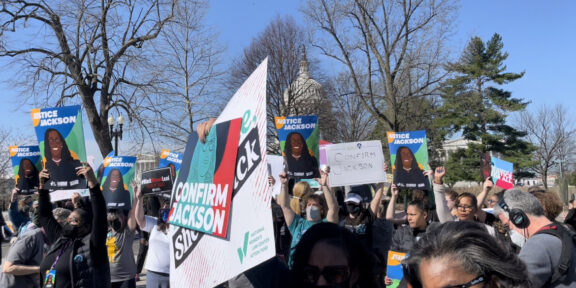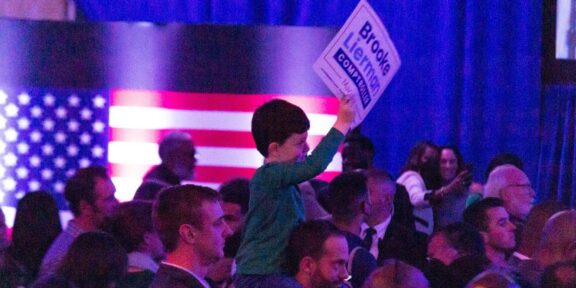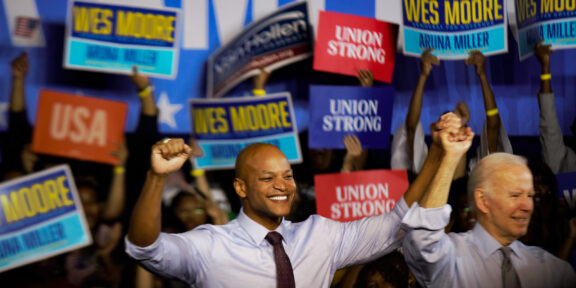By Julius Washington
Howard University News Service
“Maryland, it’s time. Let’s lead, and let’s do it together.”
Wes Moore concluded his speech with those words, after being officially sworn in as the 63rd Governor of Maryland today.
He was sworn in twice, once during a private ceremony inside the Maryland State House in Annapolis, and once more during a public outdoor ceremony in front of a crowd of several thousand assembled on Lawyer’s Mall.
He is Maryland’s first Black governor, the nation’s only sitting Black governor and just the third Black elected governor in American history, following Virginia’s Douglas Wilder and Massachusetts’ Deval Patrick.
Former New York City Mayor Bill de Blasio was in attendance as a spectator with his wife, Chirlane McCray, and shared what he believed was special about Wes Moore.
“We need leaders who are not going to accept the status quo, and this is a change maker,” de Blasio said. “This is someone who really believes we can do better, and I think he’s going to be able to do something profound.”
Moore was sworn in on two Bibles, one belonging to prominent abolitionist Frederick Douglass and the other belonging to his late grandfather, Rev. Dr. James Thomas. Thomas, whom Moore affectionately referred to as “Papa Jim,” served as the first Black minister in the history of the Dutch Reformed Church.
Moore was first introduced by retired Lt. Col. Jaime Martinez, who served with the new governor during the Afghanistan War, and later by Oprah Winfrey, an early supporter of Moore, who first engaged with Moore in 2010 for an interview about his bestselling book, “The Other Wes Moore.”
Winfrey got her professional start as the co-anchor of the six o’clock news for WJZ-TV in Baltimore and narrated an ad for the governor’s campaign late in the Democratic primary race.
“What a joy to be back here in Maryland. I’m back!” Winfrey exclaimed. “This state is something special. I know that with Wes Moore as your governor, Maryland’s best days lie ahead.”
We’ve been asked to accept that some of us must be left behind, and that in order for some to win, it means that others must lose. … We must refuse to accept that.”
— Maryland Gov. Wes Moore
In his address, the new governor did not shy away from discussing the significance of his racial background and the history he made by being elected.
“We are standing here in front of a capitol that was built by their [enslaved Africans’] hands,” Moore said.”
He wasn’t the only history-maker being sworn in at the Maryland State House at noon. Aruna Miller, Governor Moore’s running mate, came from India to the United States when she was only 7 years old. She now becomes the first immigrant to hold statewide office in Maryland’s history.
Moore took a moment in his speech to highlight Miller’s mother as well as his own mother, a Jamaican immigrant. He called them “two extraordinary women” who, in their own ways, helped to “build a state and country that works for everybody.”
Elected as a relative political outsider, Moore never served in public office, but brings experience as a White House fellow, Afghanistan war veteran and CEO of the anti-poverty organization Robin Hood.
The Montgomery County-born Moore won the seat in the November gubernatorial election by a wide margin, soundly defeating Republican gubernatorial nominee Dan Cox. Cox, who helped bus insurrectionists to the Capitol on Jan. 6, was endorsed by former president Donald Trump, but failed to secure the endorsement of popular outgoing Republican governor Larry Hogan.
In his inaugural address, Moore reiterated his campaign themes, excoriating the state’s child poverty rates, 8-to-1 racial wealth gap and the lack of health-care coverage for over 250,000 Marylanders.
“Maryland is asset-rich and strategy-poor,” Moore declared. “We’ve been asked to accept that some of us must be left behind, and that in order for some to win, it means that others must lose. And not only that, we’ve come to expect that the people that have lost will keep losing. We must refuse to accept that.”
In what has become a standard talking point for state and local elected Democrats, Moore spoke of a desire to bridge the gap between equitable policing and safe streets.
“We have been offered false choices,” Moore said. “We can build a police force that moves with appropriate intensity, and absolute integrity, and full accountability and embrace the fact that we cannot and will not militarize ourselves to safety.”
Moore called his governorship an “opportunity to lead and love” and emphasized his vision that Maryland will lead in numerous capacities, from everything including clean energy, becoming an attractive place for companies to do business and becoming a national leader in criminal justice reform.
“Today is not the victory; today is the opportunity,” he declared.
Moore will have that chance over the course of the next four years, as he seeks to unify and lead the state with united Democratic rule for the first time in eight years.
The inaugural festivities are set to continue tonight with a public inaugural ball, dubbed the “People’s Ball” at the Baltimore Convention Center at 7 p.m.
Julius Washington is a political reporter for HUNewsService.com and covered Gov. Wes Moore during the 2022 midterm election.

